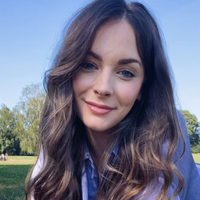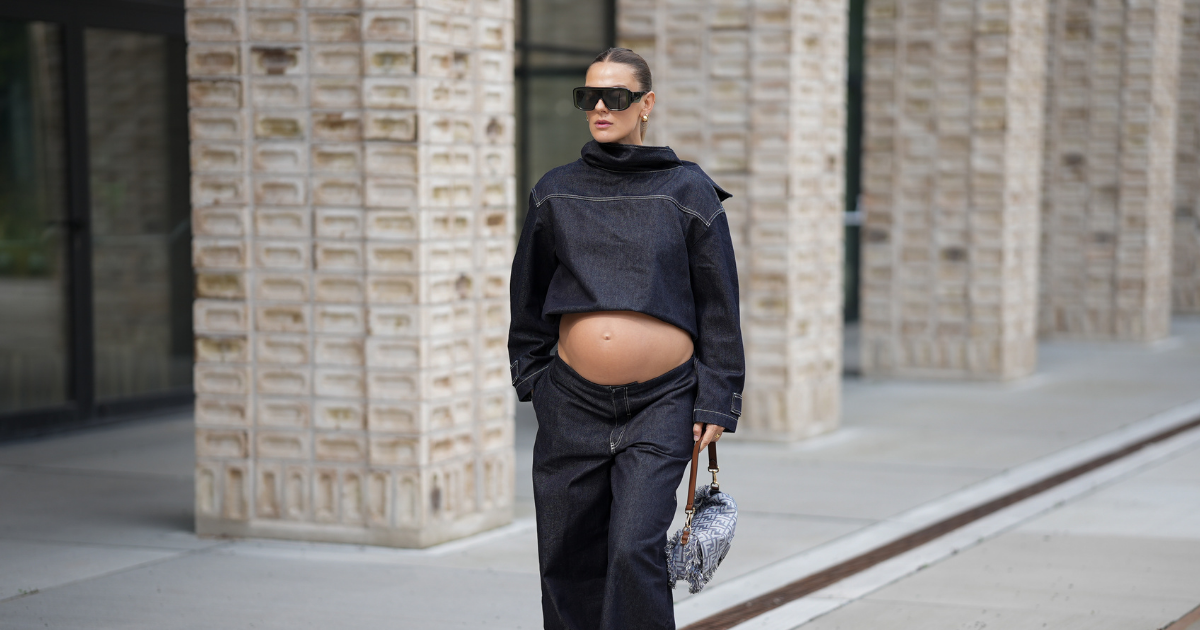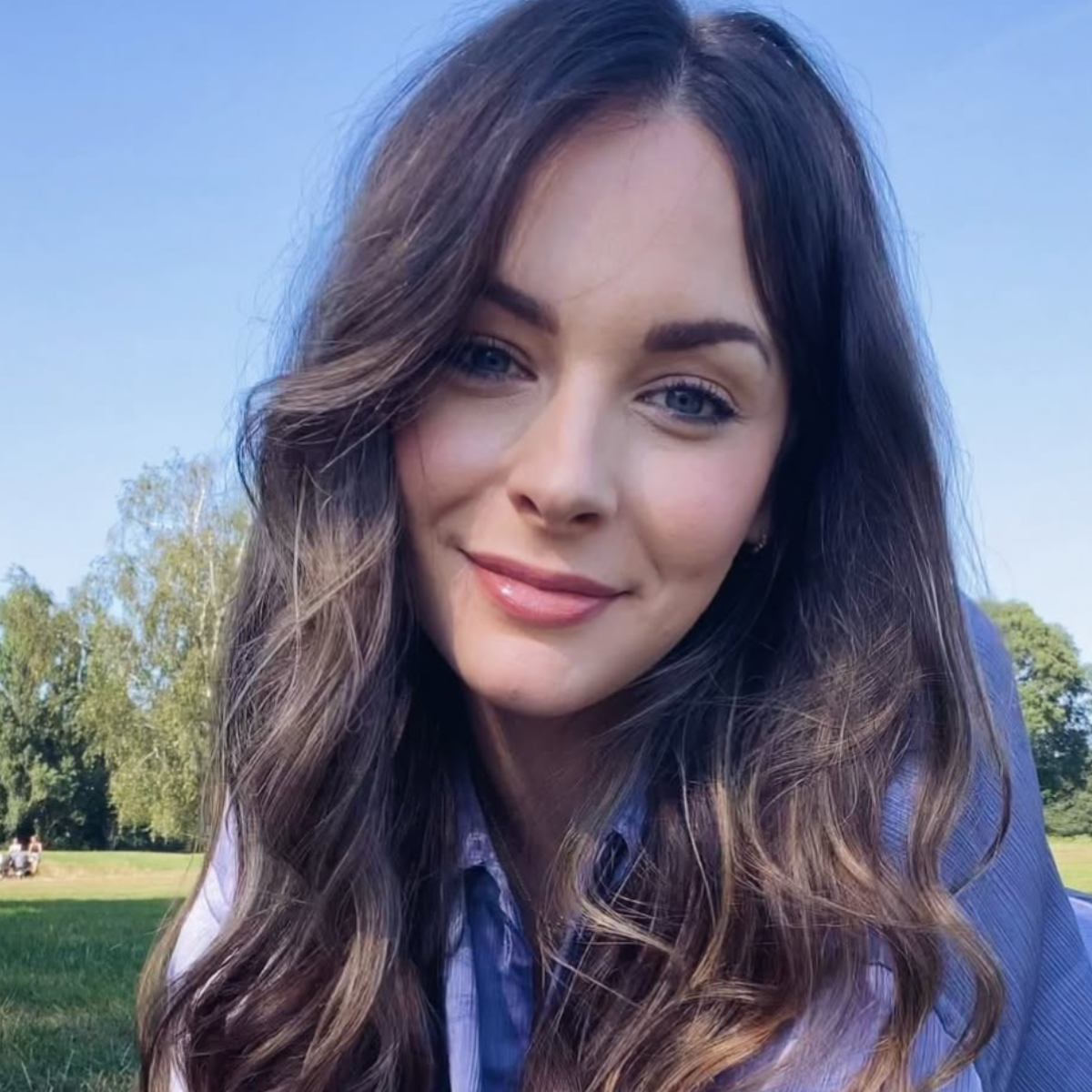Pregnancy skincare is a minefield of myths and mixed messages—think of this as the definitive guide
Expert-approved advice


Celebrity news, beauty, fashion advice, and fascinating features, delivered straight to your inbox!
You are now subscribed
Your newsletter sign-up was successful
Pregnancy is a kaleidoscope of emotions—exhilarating, nerve-wracking, joyful, and overwhelming, often all at once. It’s also a time when information comes thick and fast: blood tests, birth plans, food dos and don’ts and even the all-important pram purchase requires weeks of research.
When it comes to beauty, unfortunately, things aren’t much easier. Skincare can feel confusing enough on a good day, but pregnancy adds another layer of “rules”, from the ingredients no-nos to the salon treatments you might normally book without a second thought, but are now forbidden. To help cut through the noise, we’ve consulted the experts to break down what’s safe, what your should skip, and what’s worth swapping in for the next nine months (and beyond).
Pregnancy Skincare: Ingredients to Avoid
Pregnancy can bring on an array of skin symptoms, from melasma to increased sensitivity to acne, and it can be tempting to reach for skincare full of targeted active ingredients to treat them. However, there are certain ingredients that must be avoided during pregnancy, as well as some that probably should be paused to be on the safe side.
“There’s a lot of conflicting advice, so it’s no wonder you hear mixed messages," says Dr Chloe Pétrault, aesthetic doctor and women’s wellness specialist at ALTA Medispa. "A lot of the caution comes from a ‘better safe than sorry’ approach, but it’s worth checking each ingredient and treatment individually rather than assuming all are off-limits.”
Retinoids
All forms of retinoids should be avoided during pregnancy due to suggestive evidence that excessive amounts within the body can lead to birth defects. "Retinol itself, retinaldehyde and retinoic acid are related to the potential risk of teratogenicity [the potential of a substance to cause developmental abnormalities in a fetus] during the pregnancy," explains Dr Tiina Meder, dermatologist and founder of Meder Beauty. "So all official guidelines, including NHS guidelines, strictly say it's not recommended."
It's worth noting that, as with many warnings surrounding pregnancy, that there have not been any clinical trials done on pregnant people to prove this point as doing so would be unethical. The advice is based around observational data and animal studies, but conclusively proves that there is a link between the use of systemic isotretinoin (a prescription only, oral retinoid, which is often prescribed to treat severe acne under the brand name Roaccutane) and birth defects.
This evidence is strong enough that official guidance advises avoiding all retinoids during pregnancy—whether oral or topical—including topical tretinoin, retinol, retinal and retinoic acid.
Hydroquinone
Although strictly prohibited and banned from cosmetic use, hydroquinone still turns up in some skin-lightening creams, often sold illegally in market stalls or independent shops.
"“Hydroquinone is banned in the UK, EU, Canada and even the US, but it still occasionally appears in imported products from overseas," warns Dr Meder. "It’s a forbidden substance in cosmetics, yet you can sometimes find it in certain American or Asian skincare formulas.”
Unlike other skincare actives, hydroquinone has a high absorption level (up to 45%), which has raised concerns about systemic effects and long term use. It's a possible carcinogen (meaning it could increase the risk of cancer), and is an extremely potent melanin inhibitor. While there have been no studies on pregnant people, its potential for systemic side effects and unknown risks means it is best avoided altogether for cosmetic use—pregnant, or not.
Celebrity news, beauty, fashion advice, and fascinating features, delivered straight to your inbox!
Salicylic Acid
Salicylic acid is a staple in many acne and exfoiating products, prized for its ability to regulate sebum production and unclog pores. Again, there is very little definitive data around using it while pregnant, but many experts recommend exercising caution.
"Salicylic acid–based body products should be avoided, especially with daily use," says Dr Meder. "However, a topical facial product, such as a cleanser or peel with 2% salicylic acid used a couple of times a week, is generally considered safe."
Salicylic acid is chemically related to aspirin (acetylsalicylic acid), and, at high doses, some studies suggested that salicylates to can affect blood clotting and circulation, which could cause problems in pregnancy.
Essential oils
It's easy to assume essential oils are safe to use, as they are naturally derived, but some are incredibly potent and should be avoided. "“Aromatherapy oils can be tricky," says Dr Pétrault. "Some are fine, but others (like clary sage) are best avoided early on.”
While there are no controlled studies around clary sage, it is thought to mimic oestrogen and potentially stimulating uterine contractions. While this is used as a labour aid, it raises concerns earlier in pregnancy, when contractions could trigger miscarriage or early labour.
There's also the issue of photosensitivity when it comes to essential oils. "I will not recommend to use essential oils during the pregnancy, and I will not prescribe any specific essential oils," says Dr Meder. "Anything that increases photosensitivity of the skin during the pregnancy increases the risk of hyperpigmentation and melasma."
Time-Out on (Some) Treatments
As well as at-home products, there's also the issue of professional treatments, both in spas and clinics.
"All injectable cosmetic treatments should be avoided, including Botox and dermal fillers," says Dr Meder. "There is no safety data—they've never tested on pregnant people, and it will not be tested. It's better to avoid any unnecessary risks."
Dr Meder also advises against any energy-assisted aesthetic treatments like lasers, and Dr Pétrault warns against chemical peels. The skin can be more sensitive during pregnancy, so the chances of inflammation or irritation could be higher, and there's not enough research to guarantee their safety.
The Grey Areas
While some ingredients and treatments are strictly off-limits, others fall into a grey area—not exactly recommended, but not entirely forbidden either. Tanning is one such grey area. “Fake tan applied to the skin isn’t harmful, but spray tans are better skipped during pregnancy because you might inhale particles,” says Dr Pétrault.
Then there's hair colouring. "Most agree it’s fine after the first trimester if the space is well-ventilated," says Dr Pétrault, "but some women choose to wait as a precaution.”
As for nail treatments, Dr Meder assures certain types are completely safe. "Nail polish, manicures, pedicures performed in well ventilated spaces—they are completely safe during pregnancy. The only thing I probably would not recommend is acrylic nails, because it involves using a very strong solvent, and it can be harmful if you inhale it.”
The other big question mark is around SPF. Many people worry about the absorption of chemical UV filters, namely oxybenzone, which has been shown to enter the bloodstream and even breast milk in animal studies. However, there is no definitive data and the NHS doesn't warn against chemical SPFs, although many dermatologists recommend mineral (physical) sunscreens with zinc oxide or titanium dioxide instead, because they sit on the skin’s surface without being absorbed.
What's Actually Safe
Dr Meder believes that when it comes to pregnancy skincare, simplicity is key. "During pregnancy it’s better to avoid unnecessary products. I always advise my patients to use a basic skincare routine based around hydration, gentle cleansing, and good sun protection."
“Pregnancy is the perfect time to focus on gentle, nourishing skincare," adds Dr Pétrault. "Swap any strong actives for hydrating serums, vitamin C, hyaluronic acid, and barrier-repairing creams. You might also find your hair and nails grow faster—so embrace treatments that make you feel good, like pregnancy safe facials and wellness rituals."
As if we needed any more convincing...

Lottie Winter is the Beauty Director at Marie Claire UK. With over a decade of beauty journalism under her belt, she brings a desire to cut through the noise and get to what really matters–– products that deliver, conversations that empower, and beauty that makes people feel like their best selves.